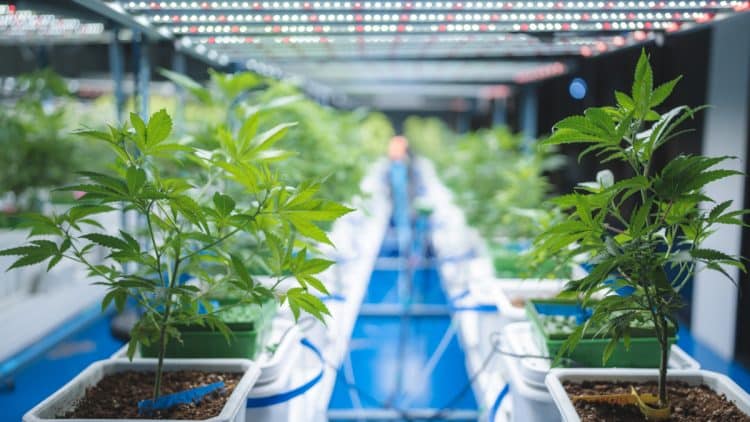Here you can find a selection of cannabis scientific studies published in the latest month. Each article is correlated with a short abstract describing the purpose of the study and the main research findings.
A great cannabis culture comes from great and peer reviewed sources! For this reason we believe in the importance of consulting reliable sources. Whether you are interested in a particular article don’t hesitate to read the full piece for more information.
Cannabis and Health ⎯ Best new findings
The potential for medicinal cannabis to help manage challenging behavior in people with intellectual disability: A perspective review
Cannabidiol (CBD) and tetrahydrocannabinol (THC) can potentially treat psychiatric and behavioral issues. By analyzing recent literature from neurobiological, pre-clinical and clinical studies related to cannabis use in case of people with intellectual disabilities (PwID) it is possible to understand the advancement in the field and the potential of the plant in treating challenging behaviors.
Nevertheless there are still doubts and questions about the use of cannabinoids to treat this group of vulnerable population. More studies should be done in order to fully understand the risks associated and how to best manage the behavioral issues of PwID.
Source: 10.1177/02698811231209192
Attitudes of medical students regarding legalization of cannabis and cannabis-education
With the more and more permissive legislation about cannabis, there is a need to understand the opinion among young doctors about this topic. The study follows a cross-sectional, comparative, quantitative design. Data were collected by means of a structured questionnaire.
Final-year medical students were identified as participants via a convenience sampling technique. This study illustrates the need for academic research regarding medicinal cannabis but interestingly shows that medical students want more guidance from their training institution about the topic.
Source: https://doi.org/10.4102/sajpsychiatry.v29i0.1948
Effect of cannabis and subproducts on anthropometric measures: a systematic review and meta-analysis
This research aims to evaluate the effects of cannabis and derivatives on body measurements. This is because obesity is a serious concern in nowadays society. Randomized controlled trials evaluating cannabis and/or cannabis derivatives use and changes in anthropometric measures led to the highlight of an actual change in the bodyweight: the use of cannabis reduced the weight by 1.87 kg (95% CI: −3.71 to −0.03)
Source: https://doi.org/10.1038/s41366-023-01399-x
A Continuing Pharmacy Education (CPE) Program Assessing Cannabidiol (CBD) Knowledge and Confidence Among Practicing Pharmacists
In order to assess the knowledge gap of pharmacists on CBD (cannabidiol) and CBD-containing products, a continuing pharmacy education (CPE) program altering the pharmacist’s confidence and competency on CBD knowledge was tested. This program can lead to increased competences and could potentially reduce the possibilities of drug interactions and unpleasant drawbacks for the patients using cannabis and derivatives.
Source: 10.1177/08971900231213938
A Survey Study of Individuals Using Hexahydrocannabinol Cannabis Products: Use Patterns and Perceived Effects
The purpose of the current study was to provide data regarding the Hexahydrocannabinol (HHC) use patterns and perceived effects within a sample of participants who endorsed recent HHC use. The main reason to use HHC is the potential treatment of anxiety and pain.
Only 17% of the sample reported adverse effects. It should be noticed that the people who stopped using HHC reported withdrawal symptoms. These data are important as a preliminary track to perform solid scientific research in order to investigate the potential therapeutic effects and detrimental effects of this cannabinoid.
Source: https://doi.org/10.1089/can.2023.0143
Absorption and Bioavailability of Novel UltraShear Nanoemulsion of Cannabidiol in Rats
This study constitutes a compelling demonstration of the high speed and efficiency of oral-gastrointestinal cannabidiol (CBD) absorption of CBD UltraShear nanoemulsions. The new formulation permits the improved CBD absorption, three to four times higher compared to other formulations and administration methods. The improved absorption levels can be achieved within 6 to 24 hours.
This observation offers great promise for possible rapid absorption and increased bioavailability via alternative non-oral-GI delivery, including potential sublingual, buccal, intranasal, rectal, and possibly transdermal routes. These results strongly invite additional testing of alternative delivery routes.
Source: https://doi.org/10.1159/000534473
Cannabis and Technology ⎯ Best new findings
Aqueous Extracts from Hemp Seeds as a New Weapon against Staphylococcus epidermidis Biofilms
This research investigated the antibiofilm activity of water-soluble extracts obtained under different pH conditions from Cannabis sativa seeds and from previously defatted seeds. The extracts contained high levels of fatty acids, monosaccharides, amino acids and glycerol in ratios depending on extraction pH.
The extracts showed great inhibitory activity against Staphylococcus epidermidis biofilms. In particular the most active extracts presenting the antibiofilm effect were the ones composed mainly by glycerolipids. More studies should be done in order to assess the potential synergistic activity of other extract components in the antibiofilm activity.
Source: https://doi.org/10.3390/ijms242216026
An In Silico Study for Expanding the Utility of Cannabidiol in Alzheimer’s Disease Therapeutic Development
In this study, the potential cannabidiol (CBD) targets associated with Alzheimer’s disease using a drug-target binding affinity prediction model and generated CBD analogs through a genetic algorithm combined with a molecular docking system were measured. It came out that six CBD targets associated with Alzheimer’s disease were identified and the improved stability of various CBD analogues was reported.
Source: https://doi.org/10.3390/ijms242116013
Veterinary Use of Cannabis — Best Latest Findings
Canine immune cells express high levels of CB1 and CB2 cannabinoid receptors and cannabinoid-mediated alteration of canine cytokine production is vehicle-dependent
The purpose of this research was to examine whether the plant-derived cannabinoids, CBD and tetrahydrocannabinol (THC), would suppress immune function in canine peripheral blood mononuclear cells (PBMCs). It was shown that canine immune cells are sensitive to suppression by cannabinoids, with the most relevant effect occurring at early stimulation times and predominantly by THC.
Moreover the study shows that the cannabinoid-mediated suppression was dog- and vehicle-dependent with CBD and THC delivered in dimethyl sulfoxide (DMSO) producing more immune suppressive effects as compared to ethanol (ETOH). More studies should be done to fully understand the mechanism and effects of cannabinoids on dogs.
Source: https://doi.org/10.1016/j.vetimm.2023.110667
PSXIII-20 The Effect of Hemp Varieties and Cannabidiol Concentrations on the in Vitro Ruminal Microbiome
This research investigates the impact of different CBD concentrations coming from various hemp varieties on in vitro microbiota diversity and abundance relative to alfalfa (Medicago sativa). The sample type might play a larger role on microbiome than CBD concentrations and further studies should be done in order to assess the changes associated in microorganisms due to CBD in rumen.












